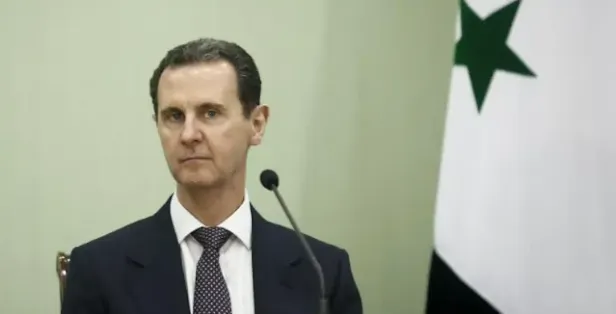What is the future of Bashar al-Assad and his family now?
Sam HancockAhad, BBC NewsDecember,16,2024.
Pros and Cons of Bashar al-Assad's Future
Pros:
1. Regional Alliances: Strong ties with Iran and Russia bolster Assad's regime, providing military and economic support.
2. Control Over Syria: Assad retains power in key regions, maintaining a central role in Syrian politics.
3. Weakened Opposition: After years of war, opposition forces are fragmented, reducing immediate threats to his rule.
4. Geopolitical Shifts: Global focus on other conflicts (e.g., Gaza, Ukraine) may lessen international scrutiny on Assad.
Cons:
1. Economic Collapse: Syria’s economy is in dire straits, with sanctions and infrastructure damage exacerbating public discontent.
2. Regional Instability: Escalating conflicts in Aleppo, Gaza, and Lebanon may strain Assad’s alliances, especially Iran.
3. War Fatigue: Prolonged violence risks eroding domestic and international legitimacy.
4. Reconstruction Challenges: Limited funding and international isolation hinder Syria's recovery and long-term stability.
When Bashar al-Assad's regime was overthrown on Sunday, it not only ended his 24-year rule over Syria, but also his family's more than half-century rule over the country.
His father had been president of Syria for three decades before taking power in 2000.
Now, with the Islamist group Hayat Tahrir al-Sham pushing ahead with government-building in Syria, the future of the ousted Syrian president, his wife and their three children is uncertain.
With Syria's former ruling family now in self-imposed exile in Russia, the question is what will happen to them next?
Why did Bashar al-Assad choose Russia after his ouster?
A simple answer to this question is that Russia emerged as a key ally of Bashar al-Assad during the civil war that began in 2011, and the Kremlin also has two military bases in the Middle Eastern country.
In 2015, Russia launched airstrikes in support of Bashar al-Assad, which ultimately turned the country’s war in his favor and saw the groups fighting against him suffer successive defeats.
According to the UK-based group, more than 21,000 people have been killed in nine years of Russian operations, including 8,700 civilians. However, with Russia’s focus on Ukraine, Russia was either no longer willing to cooperate with Bashar al-Assad or was unable to stop the rebel attacks against Bashar al-Assad in late November.
When rebel forces took control of Damascus, a few hours later, Russian state media reported that Bashar al-Assad and his family had arrived in Russia and would be granted humanitarian asylum.
But when journalists asked Kremlin spokesman Dmitry Peskov about the decision to grant asylum to Bashar al-Assad and where he was staying, he said, "I have nothing to tell you about it yet. Of course, the decision on asylum cannot be made without the permission of the head of state. This is his decision."
Bashar al-Assad's deep ties to Russia, and especially Moscow, are no secret.
In 2019, a Financial Times investigation revealed that Bashar al-Assad's family had purchased 18 luxury apartments in the Russian capital, Moscow, in order to take tens of millions of dollars out of the country during the civil war in Syria.
Last week, a local Russian newspaper reported that Bashar al-Assad's 22-year-old eldest son, Hafez al-Assad, is currently pursuing a PhD in Moscow. Amid the chaos in Damascus over the weekend, Russian state TV reported that Moscow authorities were in talks with the armed opposition in Syria about ensuring the safety of two Russian military bases and diplomatic personnel in the country.
A 1990 photo of the Assad family... Former President Hafez al-Assad with his wife Anisa and children... From left to right: Maher, Bashar, Basil, Majid and Bushra
Introducing Bashar al-Assad's wife and children
Bashar al-Assad married Asma, a dual British-Syrian citizen who was born to a Syrian family in west London.
She attended university in London before becoming an investment banker. Asma moved to Syria permanently in 2000 and married him when Bashar al-Assad became president.
Dr Nasrin al-Rifai of the London School of Economics told BBC News that Asma has a British passport and could return to London at any time rather than staying in Russia.
However, she said that the US has imposed sanctions on Asma's father, Dr Fawaz al-Akhras, who is also reported to be living in Russia. This would indicate that Asma will be spending some time in Russia.
According to a report by Mail Online, neighbors say that Asma's father is a heart doctor and her mother is a former diplomat who wants to stay in Moscow to encourage her daughter and son-in-law.
Bashar al-Assad and his wife have three children. Their names are Hafez, Zain and Karim.
According to a report presented to Congress by the US State Department in 2022, the total assets of Bashar al-Assad's entire family are worth between one and two billion dollars.
However, the report also states that accurately determining the wealth of this family is a difficult task because it is also believed that the Assad family's assets are in several banks, real estate businesses, corporations and foreign countries where they are exempt from tax.
According to the report, Bashar al-Assad and Asma “used their companies to launder money from illicit activities and provide funding to the regime, and to this end, they maintained special and close relationships with some of Syria’s most prominent economic figures.”
According to the report, Asma “had profound influence over the Economic Committee that dealt with Syria’s economic crisis” and made key decisions on Syria’s “food and fuel price concessions, trade, and currency.”
She also exerted influence over the Syria Trust for Development, through which much of the foreign aid for reconstruction in government-held areas was channeled.
In 2020, then-US Secretary of State Mike Pompeo accused Asma of being “one of Syria’s most notorious war profiteers,” along with her husband and family.
Another senior Trump administration official described Asma as an oligarch and "the family's financial steward" who was competing with her husband's cousin, Rami Makhlouf.
Rami is one of Syria's richest men. His rift with his family came to light when he shared videos on social media complaining about his mistreatment by the family.
Bashar al-Assad
Can Bashar al-Assad face trial?
After the Assad family was removed from power in Syria, Amnesty International Secretary-General Agnes Callamard described Syrians as having “a horrifying catalogue of human rights abuses” who “have suffered on a massive scale at the hands of the Assad family.”
The abuses include chemical weapons and barrel bomb attacks and other war crimes. The list of crimes includes murder, torture, enforced disappearances and destruction, which are serious crimes against humanity.
She has called on the international community to investigate and prosecute those who have broken international law and committed other serious human rights violations.
On Tuesday, a Syrian rebel leader said that if allegations of torture of political prisoners by any senior official in the former regime are proven true, the details will be made public.
Abu Muhammad al-Julani said his government would seek the extradition of officials who have fled abroad.
Judges in France have ordered the arrest of Assad for alleged involvement in crimes against humanity and war crimes in connection with a deadly chemical attack in Syria in 2013. The judges investigating the crimes cited the law of universal jurisdiction in this regard.
Russia does not extradite its citizens to another country. It should be noted that this is a legal process under which a person is returned to face trial for a suspected crime in another country or state.
It can be said that Bashar al-Assad is unlikely to leave Russia for a country where he could be extradited back to Syria and then be indicted there for serious human rights violations.
Related Topics
#Syria #Middle_East #International_Criminal_Court #Crime #Russia #Courts












No comments: